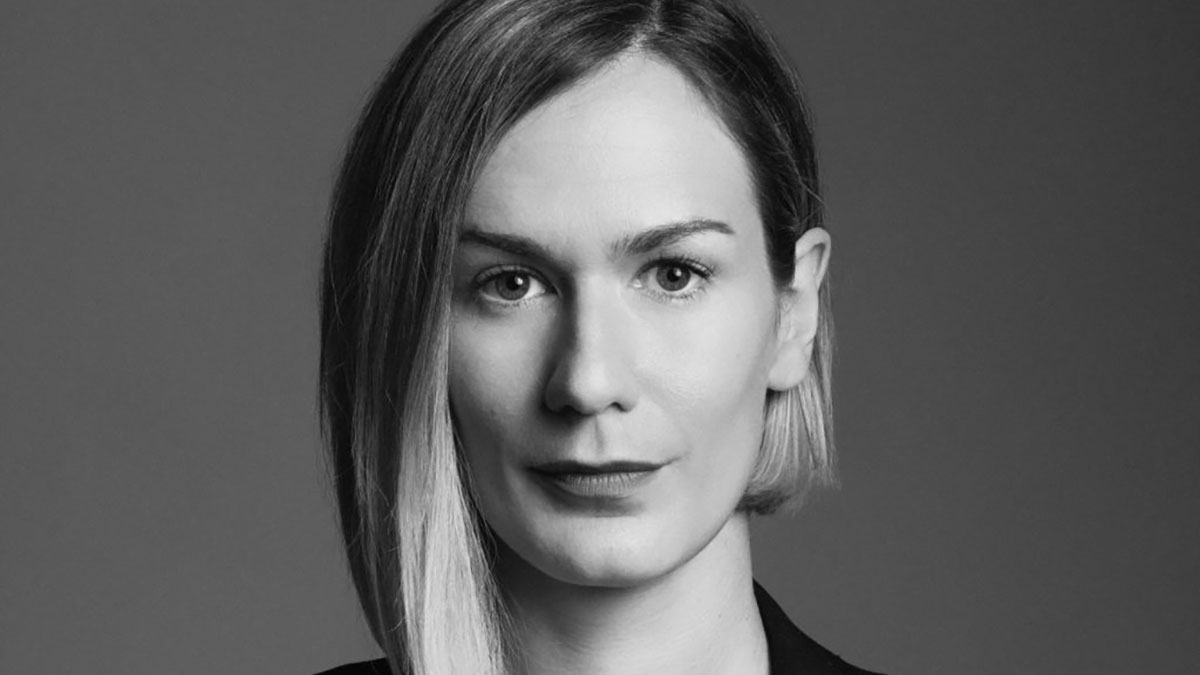
13/10/2023
Asja Krsmanović: This festival opens a discussion about current important issues
A dramaturge, scriptwriter, selector. In fact, there are few jobs that Asja Krsmanović has not done in the film industry. This year she is a member of the Mediterranean Film Festival Jury, which was a reason to talk to her about the state of the film industry these days, challenges she faces, but also about women’s rights, gender and sexual violence in our society and reasons why today it is still illusory to talk about equality.
Please present yourself, what was your life-work path?
Actually, it was exactly as the labour market determined. At the time when I was finishing my studies as a dramaturge, there wasn’t such a big offer of jobs. We simply accepted all the jobs that were offered to us. Since the study is designed in the way that it teaches you to tell the stories in different media, this gave us a kind of wideness in searching for jobs. I enrolled this college with the goal of working in the theatre, but being an external associate on theatre projects for someone who is engaged with dramaturgy would have meant literally being on the edge of existence, and often it would be completely impossible. And the same situation is today. That is why I started researching other options and doing various other jobs in the field of culture. I started working for Sarajevo Film Festival in parallel, I was a dramaturge in twenty theatre plays, wrote screenplays for short films, worked on the film sets... I tried to go through as much as possible in order to find out which things I am the most skilful at, and what are the things I am just not good at, and slowly eliminated all the things I am not really interested in, but also the ones I am interested in and not ready for yet.
What is the situation in domestic film industry today? The challenges you face?
It is dynamic. We have been faced with the insufficient allocation of budget funds for film for a long period of time, but also for other arts, and film is, of course, the most expensive one, and in order to produce it, there’s a need for the governments’ understanding of the situation in the industry. It is almost impossible to produce a quality feature fiction film today, without a co-production with several countries. This makes the film workers real heroes who manage to achieve excellent results in conditions that are not entirely in their favour.
You are the selector of the Competition program – student film at SFF. What are the subjects that preoccupy young authors today?
Young authors are interested in generational themes and it is already expected that, when it comes to student films, we will watch many films about the challenges of growing up, the relationship with family, peers, the environment which the characters grow up in. Still, their authorial relationship towards these topics and skill in telling these stories in a film language always makes this selection exciting, colourful and dynamic. More and more often, young people deal with topics such as violence, shame, the inability to connect with others... but it is difficult to generalize. Each film story is a small separate world.
To what extent is the domestic film scene open to the young and still unknown authors?
The film-making process itself has become much democratised with more affordable equipment. You don’t need truckloads of equipment to make a quality film. You need an original idea and skilful handling of film language. It is necessary to have something to say and to have taste in the way you shape the story. This is something that young people often do not understand. Every original and quality story finds its way to a place it will affirm. I believe that the scene is open for everyone; it's just that many people can't reach the quality standards and then think that it's some space that's out of their reach. I think it takes a lot of learning and self-work to accomplish results, and that's what not everyone understands. I think that anyone who works and has talent can get an opportunity and support from older colleagues.
In what way has the domestic film scene changed in the past few years and would you say that those are positive changes?
Film scene is dynamic and depends on numerous factors. It’s hard to make an assessment based on several years. I think that the biggest change has happened in the field of TV series production. The increase in the production of this type of audio-visual content has given film workers continuity in their work, more stable positions when it comes to the profession and certainly a lot of enthusiasm to create new projects, master new formats and gain knowledge and experience.
You are a Jury member at this year’s Mediterranean Film Festival – what is the biggest quality of this festival in your opinion?
I have been following this festival for many years and I think its greatest influence is in the fact that it brings quality film contents in the local community and opens a dialog about current important topics.
You are an activist when we talk about women's rights, and some of the topics you have raised are those about gender and sexual violence in the film industry. You are also the initiator of the platform 'I did not ask for it'. What is happening now with that platform? And how would you evaluate the situation we are in today?
The platform is still active although it serves the community in a different way. Before, we tried to follow what was happening in the region regarding gender-based violence and constantly bring news. Unfortunately, there are so many terrible happenings in the news every day that it simply loses its meaning, and it is a great effort for all of us to go through all this by reading and reporting regularly... What happened in the meantime is that an informal group of women gathered, from various cities in Bosnia and Herzegovina, who are constantly in communication and who react by organising protests and actions when they think it makes the most sense. ‘I didn't ask for it’ became one of the platforms for spreading their voice. On the other hand, women in the group are still writing about their experiences. Some ask for advice, some just to ease their soul... The situation is still terrifying, judging by the statistics. When it comes to change, it must come from several directions - both through legislation and raising awareness. Since legal regulations are not in our power, what we can do is to spread awareness and hope that it will have some effect.
Is it still illusory to talk about any kind of equality in our country?
All over the world it is illusory to talk about equality. If it were not so, half the program of the Mediterranean Film Festival would not exist.
To what extent are women represented in the film in our country? And what can and should we do in that field?
I think they are more than in other professions. What we can do is to make it easier for them to work in a profession that is first of all insecure, then very exhausting (working on set requires 12 hours a day for several months a year), by having understanding and collegiality when it comes to motherhood, and try to do a more child-friendly working environment. On the other hand, incentives for women in film have always come in handy in the form of awards, funds and the like.
Your first love was the theatre – in one of your earlier statements you said that the main problem, at least in B&H, was that we started to treat the theatre as just another public company. Has anything changed, what is the situation like today?
Yes, that is the situation in our country. The theatre does not bring in some money, so it doesn't pay off for anyone to do it independently, except for the few enthusiasts that I know. On the other hand, whenever I enter a theatre institution, I see how much my colleagues are constrained in their work with this form of public company. From the staff setup to the fact that most of the buildings have not been thoroughly renovated in over thirty years, some never. I think that many things are changed by the pandemic, which has brought a lot of audiences back to the theatre in the desire for meaningful human contact, and some theatre companies have realized that they have to invest much more effort into marketing, but also in quality cooperation with external associates and the creation of quality repertoire.
Can art and culture in our country change things for the better, is there a will among local cultural workers, or is everything reduced to "bare survival" and fighting for ourselves?
Not everything is bare survival. We are engaged in a beautiful profession, no matter what the conditions are, and the audience recognizes and appreciates that. My experience says that much better things have happened in this sector when people had solidarity and worked together for a common goal, than when everyone fought for themselves. When the community is better off - everyone is better off. When everyone works exclusively for themselves, the results are not good either. My favourite part of this job is precisely the cooperation with different institutions and individuals both in the profession and outside of it.


